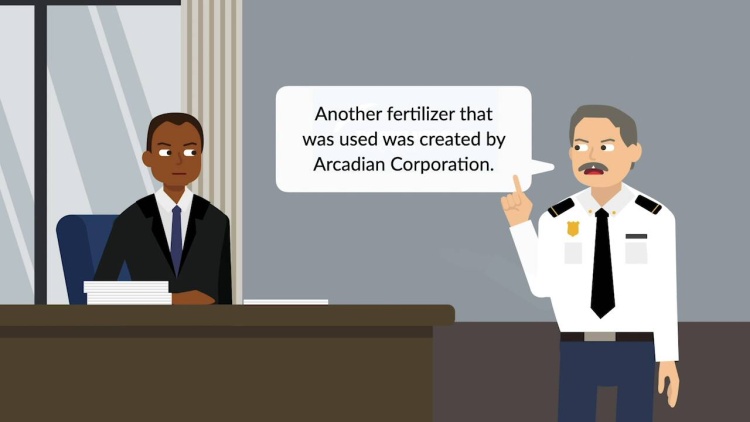Port Authority of New York & New Jersey v. Arcadian Corp.
United States Court of Appeals for the Third Circuit
189 F.3d 305 (1999)

- Written by Denise McGimsey, JD
Facts
On February 26, 1993, terrorists detonated a bomb under the World Trade Center in New York City, causing six deaths, many injuries, and substantial property damage. The terrorists had constructed the bomb using fertilizers—ammonium nitrate, urea, and nitric acid—manufactured by Arcadian Corporation, Hydro-Agri North America, Inc., and Dyno Nobel Inc. (defendants). The fertilizers, sold in their raw form, were not defective or dangerous in themselves. The explosive character of the bomb was effectuated by combining the fertilizers with other products. The Port Authority of New York & New Jersey (Port Authority) (plaintiff), owner of the World Trade Center, sued defendants under theories of negligence, strict products liability, and failure to warn. The Port Authority argued that defendants could have rendered their products non-detonable and could have warned sellers thereof to ensure that the products were being purchased for legitimate use. The Port Authority contended that defendants had reason to know that the products could be made explosive because of two explosions caused by ammonium nitrate more than 30 years in the past and because the products were regulated by several foreign countries owing to their explosion-producing capabilities. A federal district court dismissed the complaint for failing to state a viable cause of action. The Port Authority appealed.
Rule of Law
Issue
Holding and Reasoning (Roth, J.)
Concurrence (Hoeveler, J.)
What to do next…
Here's why 907,000 law students have relied on our case briefs:
- Written by law professors and practitioners, not other law students. 47,100 briefs, keyed to 996 casebooks. Top-notch customer support.
- The right amount of information, includes the facts, issues, rule of law, holding and reasoning, and any concurrences and dissents.
- Access in your classes, works on your mobile and tablet. Massive library of related video lessons and high quality multiple-choice questions.
- Easy to use, uniform format for every case brief. Written in plain English, not in legalese. Our briefs summarize and simplify; they don’t just repeat the court’s language.





